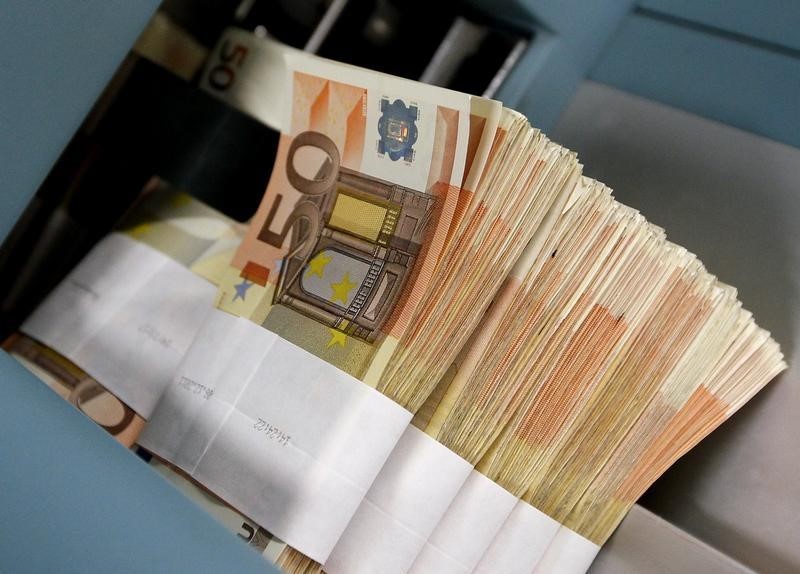By Geoffrey Smith
Investing.com -- The euro fell to a new 20-year low against the dollar on Tuesday, after fresh survey data showed the Eurozone economy edging closer toward contraction, under the pressure of Russia's war in Ukraine.
By 4:40 AM ET (0840 GMT), the euro was down 0.8% on the day at $1.0335, the lowest it has been since it was overcoming the initial global skepticism toward it on its creation in 1999.
The latest leg downward followed the release of S&P Global's composite purchasing managers index for the single currency bloc, a closely watched barometer of activity, which fell to 52.0 in June from 54.8 in May. That was a fraction higher than initially estimated but still the lowest reading in 16 months.
S&P said the figures mean that Eurozone growth probably slowed to around 0.2% in the second quarter as a whole while falling readings for things like new orders and employment indicate worse to come in the months ahead.
“The manufacturing sector is already in decline, for the first time in two years, and the service sector has suffered a marked loss of growth momentum amid the cost of living crisis," said Chris Williamson, chief business economist at S&P Global Market Intelligence.
"Household spending on non-essential goods and services has come under particular pressure due to soaring prices but business spending and investment is also waning in response to the gloomier outlook and tightening financial conditions," he added.
One bright spot from the survey was that inflationary pressures may be starting to ease, S&P said, citing "a marked cooling of industrial price growth, improving supply chains and diminished demand." Even so, they remain 'elevated'.
Any sustained easing of price pressures would reduce the pressure on the European Central Bank to raise interest rates aggressively throughout the summer. The bank's guidance has led markets to expect a 25 basis point hike in July and a 50 basis point hike in September.
The PMI data triggered an abrupt revision of those expectations: by 4:40 AM ET, yields on the interest-rate-sensitive German 2-Year bond were down 13 basis points at 0.49%.
